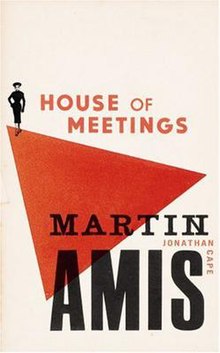
Aleksandr Isayevich Solzhenitsyn was a Russian author and Soviet dissident who helped to raise global awareness of political repression in the Soviet Union, especially the Gulag prison system. He was awarded the 1970 Nobel Prize in Literature "for the ethical force with which he has pursued the indispensable traditions of Russian literature". His non-fiction work The Gulag Archipelago "amounted to a head-on challenge to the Soviet state" and sold tens of millions of copies.

Sir Martin Louis Amis was an English novelist, essayist, memoirist, screenwriter and critic. He is best known for his novels Money (1984) and London Fields (1989). He received the James Tait Black Memorial Prize for his memoir Experience and was twice listed for the Booker Prize. Amis was a professor of creative writing at the University of Manchester's Centre for New Writing from 2007 until 2011. In 2008, The Times named him one of the 50 greatest British writers since 1945.
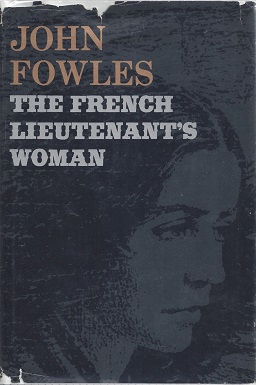
The French Lieutenant's Woman is a 1969 postmodern historical fiction novel by John Fowles. The plot explores the fraught relationship of gentleman and amateur naturalist Charles Smithson and Sarah Woodruff, the former governess and independent woman with whom he falls in love. The novel builds on Fowles' authority in Victorian literature, both following and critiquing many of the conventions of period novels.
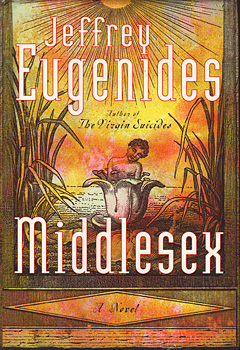
Middlesex is a Pulitzer Prize–winning novel by Jeffrey Eugenides published in 2002. The book is a bestseller, with more than four million copies sold since its publication. Its characters and events are loosely based on aspects of Eugenides' life and observations of his Greek heritage. It is not an autobiography; unlike the protagonist, Eugenides is not intersex. The author decided to write Middlesex after reading the 1980 memoir Herculine Barbin and finding himself dissatisfied with its discussion of intersex anatomy and emotions.
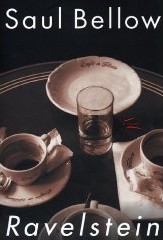
Ravelstein is Saul Bellow's final novel. Published in 2000, when Bellow was eighty-five years old, it received widespread critical acclaim. It tells the tale of a friendship between a university professor and a writer, and the complications that animate their erotic and intellectual attachments in the face of impending death. The novel is a roman à clef written in the form of a memoir. The narrator is in Paris with Abe Ravelstein, a renowned professor, and Nikki, his lover. Ravelstein, who is dying, asks the narrator to write a memoir about him after he dies. After his death, the narrator and his wife go on holiday to the Caribbean. The narrator catches a tropical disease and flies back to the United States to convalesce. Eventually, on recuperation, he decides to write the memoir.
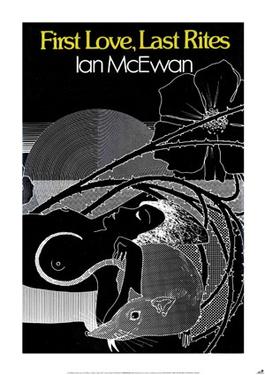
First Love, Last Rites is a collection of short stories by Ian McEwan. It was first published in 1975 by Jonathan Cape, with cover designed by Bill Botten, and re-issued in 1997 by Vintage.

London Fields is a blackly comic murder mystery novel by the British writer Martin Amis, published in 1989. The tone gradually shifts from high comedy, interspersed with deep personal introspections, to a dark sense of foreboding and eventually panic at the approach of the deadline, or "horror day", the climactic scene alluded to on the very first page.
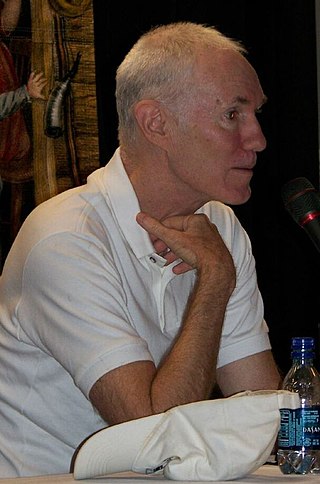
Andrew Holleran is the pseudonym of Eric Garber, an American novelist, essayist, and short story writer, born on the island of Aruba. Most of his adult life has been spent in New York City, Washington, D.C., and a small town in Florida. He was a member of The Violet Quill with Christopher Cox, a gay writer's group that met in 1980 and 1981 and also included Robert Ferro, Edmund White and Felice Picano. Following the critical and financial success of his first novel Dancer from the Dance in 1978, he became a prominent author of post-Stonewall gay literature. Historically protective of his privacy, the author continues to use the pseudonym Andrew Holleran as a writer and public speaker.

Time's Arrow: or The Nature of the Offence (1991) is a novel by Martin Amis. It was shortlisted for the Booker Prize in 1991. It is notable partly because the events occur in a reverse chronology, with time passing in reverse and the main character becoming younger and younger during the novel.

Yellow Dog is the title of a 2003 novel by the British writer Martin Amis. Like many of Amis's novels, the book is set in contemporary London. The novel contains several strands that appear to be linked, although a complete resolution of the plot is not immediately apparent. An early working title for the novel, according to an interview Amis gave with The Observer Review in September 2002, was Men in Power. Despite some rather harsh criticism, Yellow Dog made the longlist for the Man Booker Prize in 2003.

The Rachel Papers is Martin Amis's first novel, published in 1973 by Jonathan Cape.
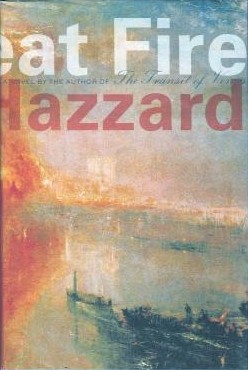
The Great Fire (2003) is a novel by the Australian author Shirley Hazzard. It won the U.S. National Book Award for Fiction and a Miles Franklin literary award (2004). The novel was Hazzard's first since The Transit of Venus, published in 1980.

Lolita is a 1955 novel written by Russian-American novelist Vladimir Nabokov that addresses the controversial subject of hebephilia. The protagonist is a French literature professor who moves to New England and writes under the pseudonym Humbert Humbert. He describes his obsession with a 12-year-old "nymphet", Dolores Haze, whom he kidnaps and sexually abuses after becoming her stepfather. Privately, he calls her "Lolita", the Spanish diminutive for Dolores. The novel was originally written in English, but fear of censorship in the U.S. and Britain led to it being first published in Paris, France, in 1955 by Olympia Press.
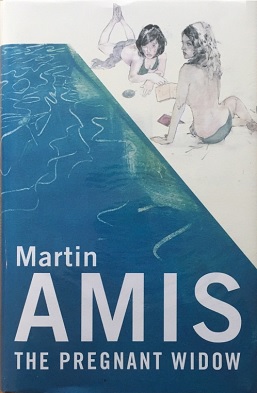
The Pregnant Widow is a novel by the English writer Martin Amis, published by Jonathan Cape on 4 February 2010. Its theme is the feminist revolution, which Amis sees as incomplete and bewildering for women, echoing the view of the 19th-century Russian writer, Alexander Herzen, that revolution is "a long night of chaos and desolation". The "pregnant widow", a phrase taken from Herzen's From the other shore (1848–1850), is the point at which the old order has given way, the new one not yet born. Amis said in 2007 that "consciousness is not revolutionised by the snap of a finger. And feminism, I reckon, is about halfway through its second trimester."
Arturo Belano is the alter ego of the Chilean writer Roberto Bolaño. The given name is due to that of Arthur Rimbaud, French poet for whom Bolaño felt great admiration. The character's first appearance was in the novella Distant Star, where it is implied he is the narrator, while his most prominent role was in The Savage Detectives where he and fellow writer Ulises Lima are the central characters. Belano also appears in several short stories and in the novella Amulet; he is of the same age and nationality as Bolaño, with many shared elements in their biographies including a move from Chile to Mexico in their teens with their families, traveling around the world, and finally settling in Spain.
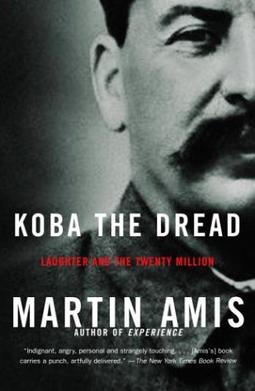
Koba the Dread: Laughter and the Twenty Million is a 2002 non-fiction book by British writer Martin Amis.

Sweet Tooth is a novel by the English writer Ian McEwan, published on 21 August 2012. It deals with the experiences of its protagonist, Serena Frome, during the early 1970s. After graduating from Cambridge she is recruited by MI5, and becomes involved in a covert programme to combat communism by infiltrating the intellectual world. When she becomes romantically involved with her mark, complications ensue.
Isabel Fonseca, Lady Amis is an American writer. She is best known for her books Bury Me Standing: The Gypsies and Their Journey and Attachment. She was married to novelist Sir Martin Amis until his death in May 2023.

Lemmons, also known as Gladsmuir and Gladsmuir House, was the home of novelists Kingsley Amis (1922–1995) and Elizabeth Jane Howard (1923–2014) on the south side of Hadley Common, Barnet, on the border of north London and Hertfordshire.
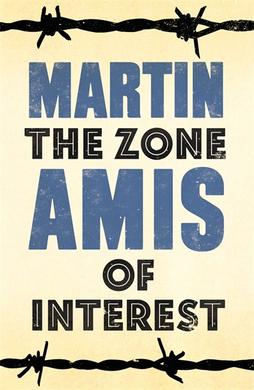
The Zone of Interest is the fourteenth novel by the English author Martin Amis, published in 2014. Set in Auschwitz, it tells the story of a Nazi officer who has become enamoured of the camp commandant's wife. The story is conveyed by three narrators: Angelus Thomsen, the officer; Paul Doll, the commandant; and Szmul Zacharias, a Jewish Sonderkommando.
